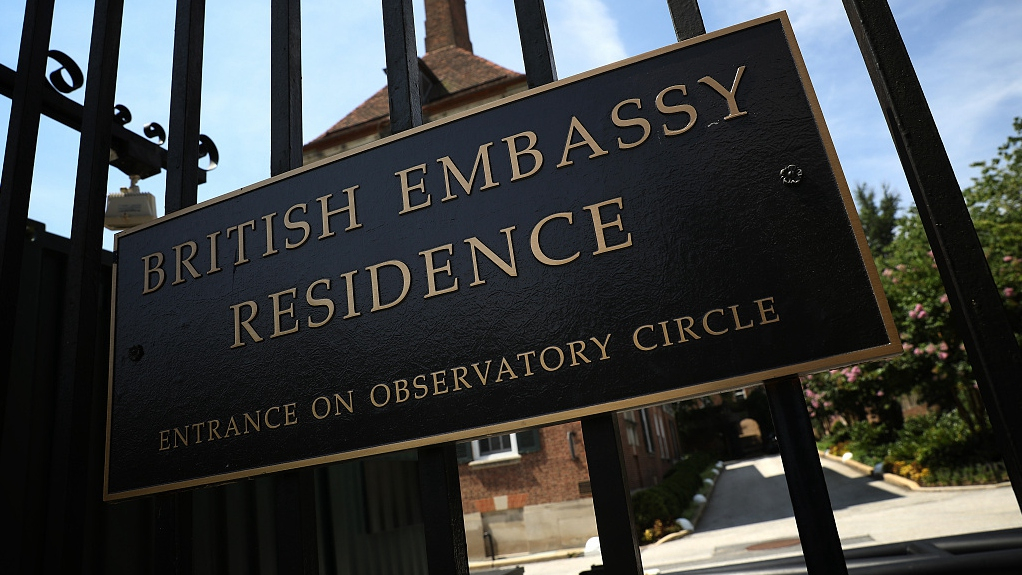
(Photo: CGTN)
Over the weekend, a dispute broke out among the British press, as well as politicians, and London's Metropolitan Police regarding a statement made by the Assistant Police Commissioner, Neil Basu, warning journalists not to publish leaked communications or face possible criminal prosecution.
The warning came after the leak and publication of confidential diplomatic cables between the UK's ambassador to the United States, Sir Kim Darroch, and the Foreign and Commonwealth Office, which led to an angry tirade from Donald Trump and the eventual resignation of Sir Kim.
Rumors were rife that further revelations from the leaked cables would be published over the weekend, which prompted Mr Basu's statement. After warning journalists of the possible criminal nature of such publications, he added that he would advise "all owners, editors and publishers of social and mainstream media not to publish leaked government documents.”
The criticism of his statement was immediate. The former Chancellor of the Exchequer and now editor of the Evening Standard newspaper, George Osborne, described Mr Basu’s comments as "stupid” and “ill-advised” and claimed that the assistant commissioner "doesn't appear to understand much about press freedom.”
Outside the media, several prominent politicians also weighed in to criticize the warning. Foreign Secretary and Conservative Party leadership hopeful, Jeremy Hunt, said that he would support “to the hilt” the right of the press to publish leaked documents, provided they judge such reporting to be in the “national interest.” His leadership rival Boris Johnson agreed that it was the leaker who should be "hunted down and prosecuted," rather than any journalists reporting the leaks.
This question as to what is in the "public interest" is the key debate at play here. Technically in law journalists do not have a defense available to them for breaching a UK law that protects state secrets called the Official Secrets Act. That said, it is generally understood that the media should be allowed to report on such information provided it is in the public interest to do so.
How to decide what is and what is not in the public interest, however, is extremely difficult. There is a common expression that "what interests the public" is not the same as “the public interest,” but journalists are generally given a very broad remit within which to operate on this basis.
It is thought that one body in particular deciding what is and is not in the public interest would be a draconian restriction on press freedom. Journalists, therefore, have a large amount of responsibility placed on them to get this right.
The overwhelming concern regarding the introduction of any restrictions on such reporting, however, is the chilling effect that it could have on press freedom as a precedent. Given the difficulty of deciding whether or not something is in the public interest, journalists would likely be intimidated into avoiding potentially-contentious reporting on other stories damaging to the government if a prosecution had occurred as a result of previous reporting.
It could be argued, therefore, that even if a particular case might, on balance, not be in the public interest, restricting the reporting of that case might have such a damaging effect on press freedom that it is best to allow it in any case. Indeed, this seems to be the perspective under which most critics of Mr Basu's comments are operating.
In fact, the criticism was so overwhelming that the Metropolitan Police subsequently backtracked on their initial warnings. Mr Basu issued a further statement clarifying that Scotland Yard was apparently not attempting to stop the press from publishing stories, despite this appearing to be exactly what he was trying to do.
This was a fairly embarrassing climbdown after such a strong statement less than 24 hours beforehand and illustrated the strength of feeling across society that journalists must be able to report on such cases, no matter how embarrassing they might be for the government. The alternative is simply too dangerous in the precedent that it would set for future reporting on matters of great importance to the public.


